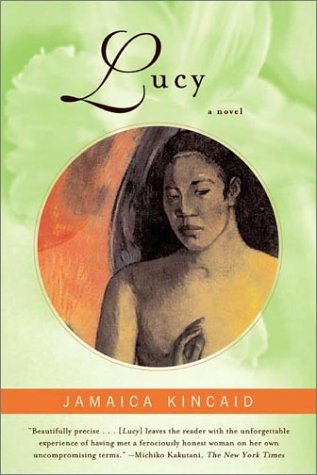“הספר השני של גברת קינקייד שאני קורא, לראשון מר פוטר לא כל כך התחברתי, וכשחפשתי את הסקירה שכתבתי עליו בעבר לא מצאתי כלום. אני זוכר שהיה לי קשה להסביר לעצמי מה לא אהבתי בו, אז למה לנסות לכתוב סקירה? את הספר לוסי אהבתי, מדובר בנובלה, אם מוטיבים אוטוביוגרפים מובהקים. קינקייד מצליחה לקפל ביריעה די קצרה המון. אפשר לקרוא בספר הזה- על הנושאים הבאים: הגירה, קולוניאליזם- מנקודת מבט תושב הקולניות, יחסי אם וב”







